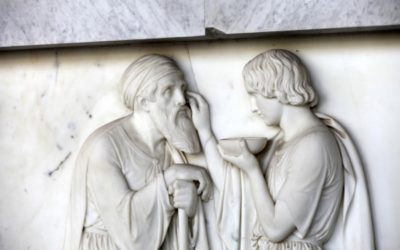James E. Talmage clearly understood the idea that faith is belief plus action. His study of the scriptures had convinced him of this definition. But there was one scriptural passage that puzzled him because it seemed to be an exception to this general rule.
In Elder Talmage’s eloquent biography of the Savior, Jesus the Christ, he expressed wonder about an incident in Mark 9:23 of the New Testament in which Jesus tells a father, “If thou canst believe, all things are possible to him that believeth.” After reading this passage, Talmage puzzles, “It is noteworthy that the Lord specified belief rather than faith as the condition essential to the case.” (James E. Talmage, Jesus the Christ [Salt Lake City: Deseret Book, 1973], 380.)
Elder Talmage was right in wondering about this apparent exception to the idea that mere belief is insufficient. Had Elder Talmage understood Greek, he would have had no cause to wonder.
Our Eighth Article of Faith says, “We believe the Bible to be the word of God as far as it is translated correctly,” and Mark 9:23 is a passage in which the King James Version translation proves to be a problem. The problem arises from the fact that English does not have a verb form of the word faith. To English speakers, faith is just a noun. The word Jesus uses when addressing the father in this passage is the verb form of the word faith. Since English doesn’t have a verb form of the word, the translators rendered it as “believe.”
A better translation of Mark 9:23 would be, “If thou canst but have faith, all things are possible to him that has faith.” If Elder Talmage had been able to read the passage in the original Greek, he would have had no cause to wonder. The passage is not an exception at all. The general rule still holds: mere belief is not enough. Faith requires action.


